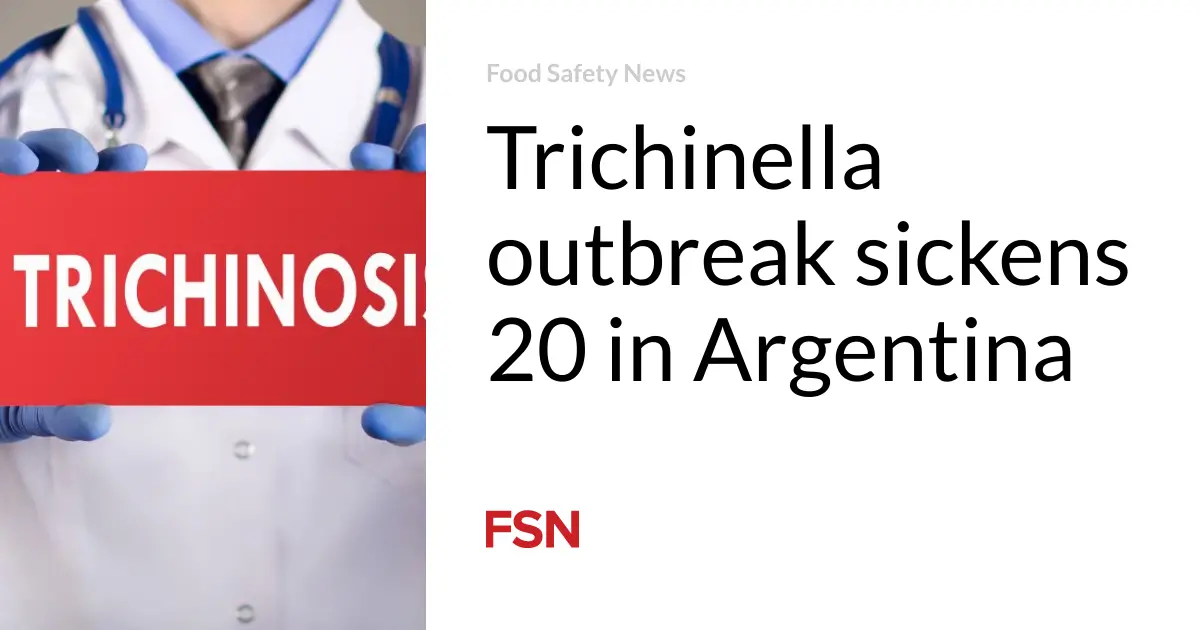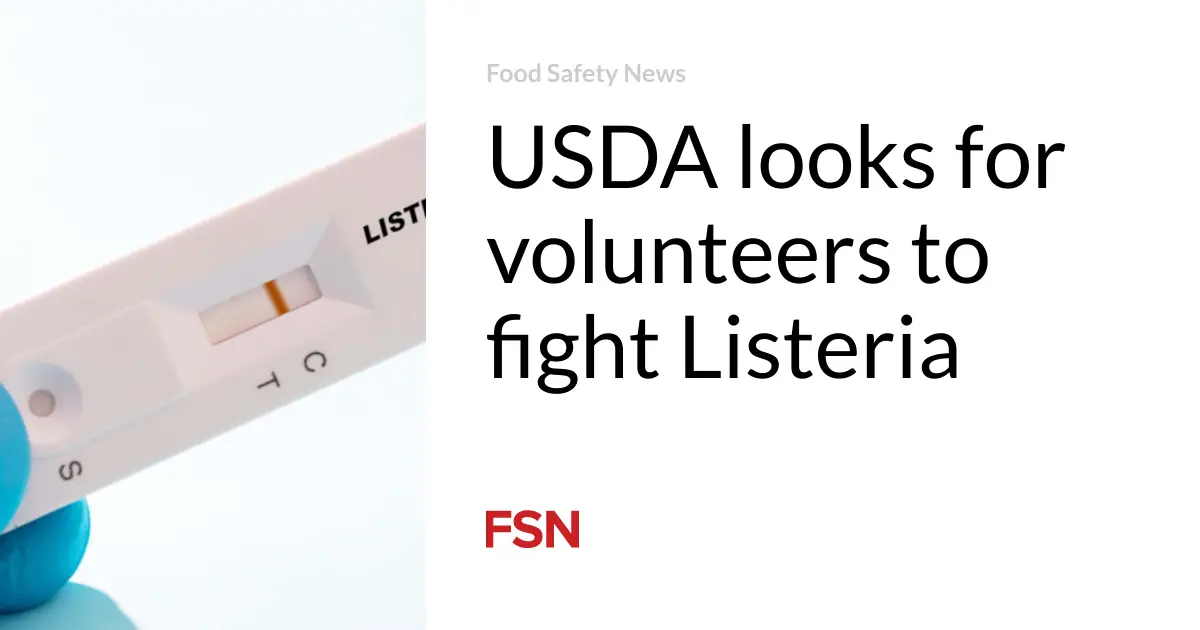
At least 20 people have been sickened in an outbreak of trichinosis in Argentina.
Health officials in the province of Santa Fe said ill people reported consumption of chorizo seco, a type of dried sausage, from a local business.
In the town of Acebal, 26 potentially exposed people have been reported so far, of which 20 developed symptoms.
An investigation is being carried out into the outbreak associated with eating products with a suspected manufacturing date between April 24 and May 16 this year.
Product samples were taken, and the Santa Fe Food Safety Agency (Assal) laboratory reported a positive sample for Trichinella spiralis.
Wider problem
Assal recommended that people not consume products from raw or undercooked pork prepared by the implicated outlet. Other advice included not buying unlabeled items or meat products on social media.
In 2023, health officials in the province of Buenos Aires reported 651 suspected cases and seven outbreaks. Up to mid-September, 433 suspected infections plus 387 confirmed and probable cases had been recorded in 2023 across the country.
Trichinosis is transmitted by eating raw or undercooked pork contaminated with the parasite Trichinella.
Initial symptoms of infection are nausea, diarrhea, vomiting, fatigue, fever, and abdominal discomfort. Headaches, fevers, chills, cough, swelling of the face and eyes, aching joints and muscle pains, itchy skin, diarrhea, or constipation may follow. Patients may have difficulty coordinating movements and have heart and breathing problems.
Abdominal symptoms can occur one to two days after infection. Further symptoms usually start two to eight weeks after eating contaminated meat. Freezing, curing or salting, drying, smoking, or microwaving meat may not kill the organism. The best way to prevent trichinosis is to cook meat to a temperature of 71 degrees C (160 degrees F).
Official control findings
Meanwhile, the National Service for Agri-Food Health and Quality (Senasa) has carried out a number of recent controls targeting produce and meat products.
In one operation, 2,350 kilograms of fruits that had not been declared and were hidden alongside general merchandise were seized. The issue was detected at a checkpoint between the province of Buenos Aires and Río Negro. In total, 1,890 kilograms passed as suitable for consumption were donated.
As part of other checks, 22 tons of produce was detained in the Corrientes region as there was a lack of documentation on the origin, which presents a potential danger to public health. Implicated products were lemons, passion fruit, and ginger.
Senasa also confiscated products of animal and plant origin transported without health documentation or a transit permit originating from La Rioja. Items included pork, sausages, mortadella, salami, and mandarins.
In Río Negro, 7,800 kilograms of beef was seized after a truck initially skipped Senasa agents and their instructions to pull over. When the vehicle was stopped, inspectors found issues with respecting the cold chain, the hygiene conditions required to guarantee safety, and a lack of documentation.
Finally, inspectors found 4,580 kilograms of meat hidden in a water tank. Beef was in the tank being transported in a truck from Bahía Blanca to the province of Río Negro. The merchandise did not have the required sanitary conditions or the necessary documentation.
(To sign up for a free subscription to Food Safety News, click here.)







